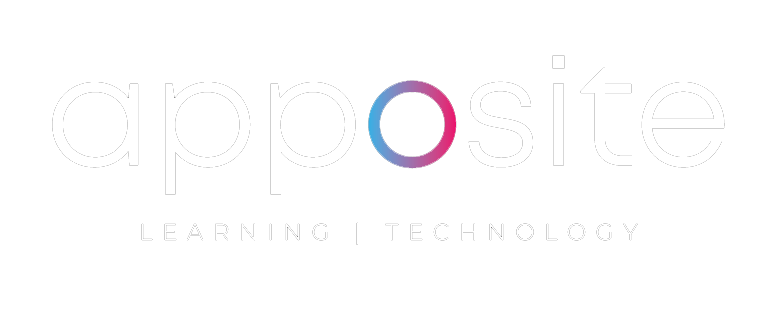A few months ago, you finally found the perfect AI specialist. Great resume, smooth interview, impressive experience. Relief washed over the team. Finally, someone to lead the AI transformation.
Then yesterday, that person resigned.
Three months. Tens of thousands in recruitment costs lost momentum. And now, the search begins again. Meanwhile, someone in your accounting team just automated the invoicing process after taking a six-week online course in AI tools. Because they were tired of chasing down overdue payments. No one asked them to do it. They just saw a better way.
That story plays out everywhere. It makes you wonder if companies are too focused on hiring new AI experts rather than helping existing employees grow their AI skills.
The Hiring Trap We Keep Falling Into
When organizations need AI expertise, hiring feels like the obvious answer. It seems quick, clean, and decisive, “until it isn’t.” The problem which every company wants the same small pool of talent. They’re competing with tech giants, startups, and anyone offering bigger paychecks.
Hiring a skilled AI professional can cost three to four times their annual salary, including recruiter fees, onboarding, and time to full productivity. And in today’s job market, there’s no guarantee they’ll stay long enough to make an impact.
In contrast, many employees across HR, marketing, finance, and customer service are eager to learn how to use AI in their everyday work. They already understand company systems, customers, and challenges. All they need are the right tools and training to be effective.
Why AI Upskilling Often Wins
AI upskilling does not just teach new technical skills—it empowers people to apply AI to genuine business problems. Whether it’s AI in HR for smarter hiring and retention analytics, AI in marketing for personalized campaigns, or AI in customer service for faster support and better insights, employees can quickly turn learning into measurable results.
Training thirty employees in AI for non-tech roles typically costs a fraction of hiring one external expert. But the real return isn’t just financial. That’s cultural. When people learn
AI skills for roles they already understand, motivation and retention skyrocket. They start identifying opportunities that leaders didn’t even know existed.
For example:
· A marketing team trained in workplace AI training tools could use data-driven insights to predict customer trends before they happen.
· An HR department applying AI in HR could reduce time-to-hire and spot patterns in employee engagement.
· A customer service team exploring AI in customer service could automate common queries, freeing time for high-value interactions and spotting feedback trends faster.
These wins compound. Upskilled employees don’t just perform better. They share ideas, mentor others, and create a ripple effect of innovation across the organization.
Some statistics to bolster this:
· According to McKinsey & Company, 42% of workers expressed interest in upskilling or say they are currently looking for upskilling opportunities.
· And yet, 64% of managers don’t believe their employees can keep pace with future skill needs, while 70% of employees say they haven’t even mastered the skills they need for their current jobs.
· A Gartner, Inc. survey found that 85% of business leaders agree that there will be a surge in skills-development needs due to AI and digital trends over the next three years.
· Gartner also predicts that by 2027, 80% of the engineering workforce will need to upskill because of generative AI’s impact.
· According to McKinsey, about 75% of existing jobs will require redesign, upskilling, or redeployment by 2030, given AI’s impact.
These numbers suggest there’s both desire and necessity for upskilling, and a real gap between where companies are and where they need to be.
When Upskilling Fails (and How to Avoid It)
Not every AI training program succeeds. Some fail because they teach irrelevant skills, like deep coding, when and what employees need is hands-on practice with practical tools. Others fail because leaders treat training like a checkbox exercise instead of a long-term investment.
The good news is that even imperfect programs often outperform external hiring when done thoughtfully. Success usually depends on three factors:
1. Relevance: Teach people how AI applies to their specific roles and workflows. A finance analyst doesn’t need deep learning theory; they just need to know how to automate reporting and forecasting.
2. Time: Give employees space to practice and experiment. Learning AI concepts without real application rarely sticks.
3. Leadership example: When leaders actively use AI tools themselves, adoption spreads faster across teams.
Companies that make training relevant, supported, and leadership-driven see tangible results. Employees not only learn how to use AI. They start thinking differently about their work.
The Real Message Behind Every Hiring Decision
Every time a company hires externally for new AI capabilities instead of developing them internally, it sends an unintended message: “We don’t believe our people can learn this.” But they can.
In fact, they already know the business better than any outsider—they understand your culture, customers, and pain points. They just need the chance and the right support to grow.
Organizations that invest in AI upskilling build not only technical capability but also confidence and loyalty. When people see their employers investing in their growth, they become more engaged and more willing to innovate. That’s the kind of competitive advantage that doesn’t walk out the door after a few months.
The Smarter Way Forward
The most successful organizations aren’t choosing between hiring and training. They’re combining both strategically. They hire one or two AI experts to set frameworks and best practices, then upskill dozens of existing employees to apply and expand those systems across teams.
This hybrid approach multiplies expertise, keeps institutional knowledge intact, and accelerates adoption. It’s how businesses build an AI-ready workforce, where every department, from HR to marketing to customer service, knows how to use AI for smarter decisions and faster growth.
Because the future of AI at work doesn’t belong only to external specialists. It belongs to the people who already know your organization best and are ready to evolve with it.
Build Your AI-Ready Workforce with Apposite
Your next wave of innovation isn’t waiting on a job board. It’s already sitting in your offices, ready to learn. Investing in AI upskilling through workplace AI training builds stronger teams, sharper strategies, and long-term ROI.
Let Apposite help you design a practical, scalable AI-learning strategy tailored to your organization.
Schedule a consultation today and start transforming your workforce, one AI skill at a time.

